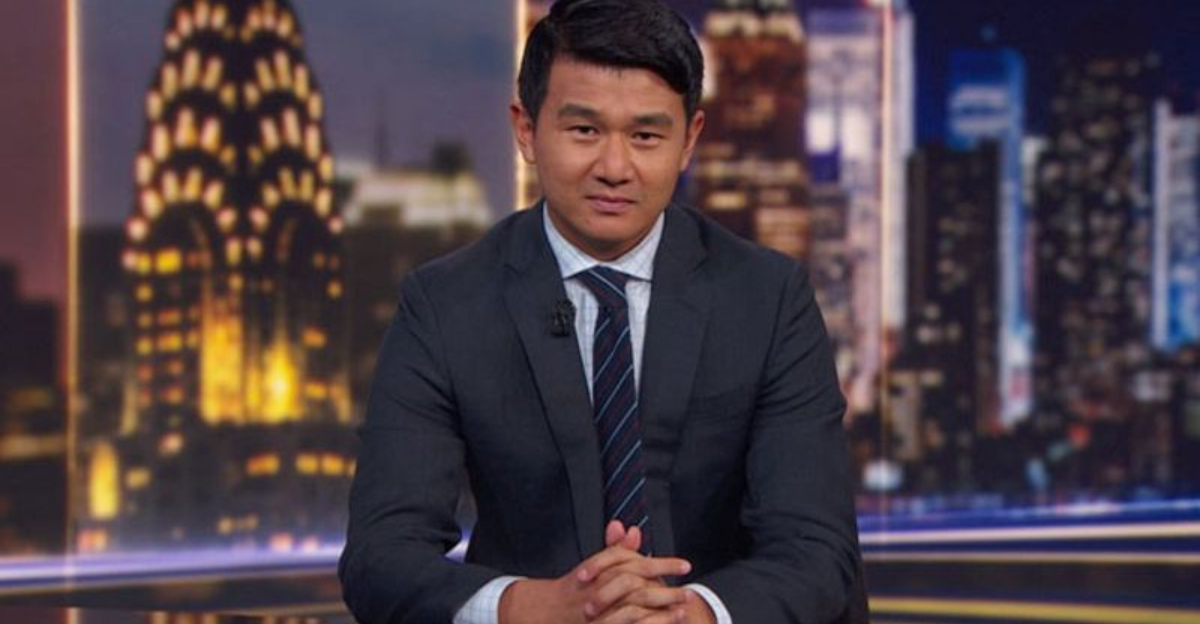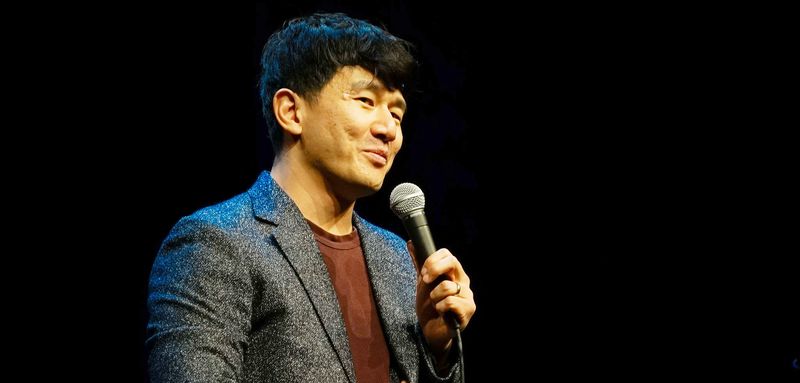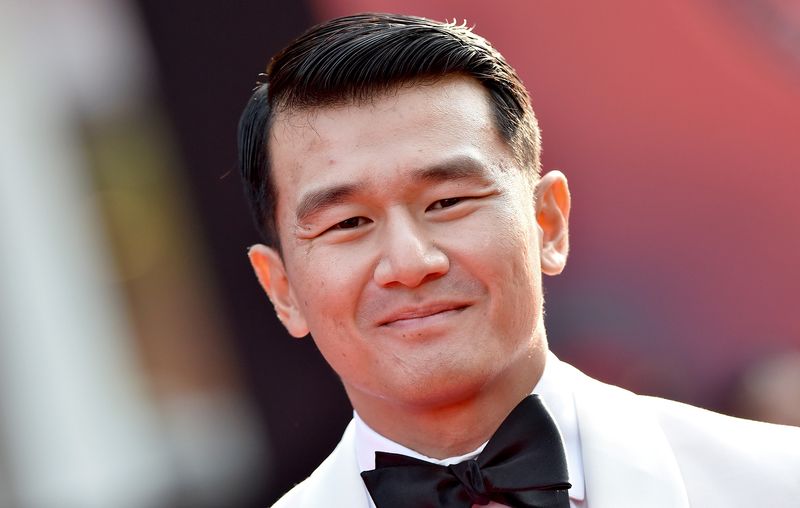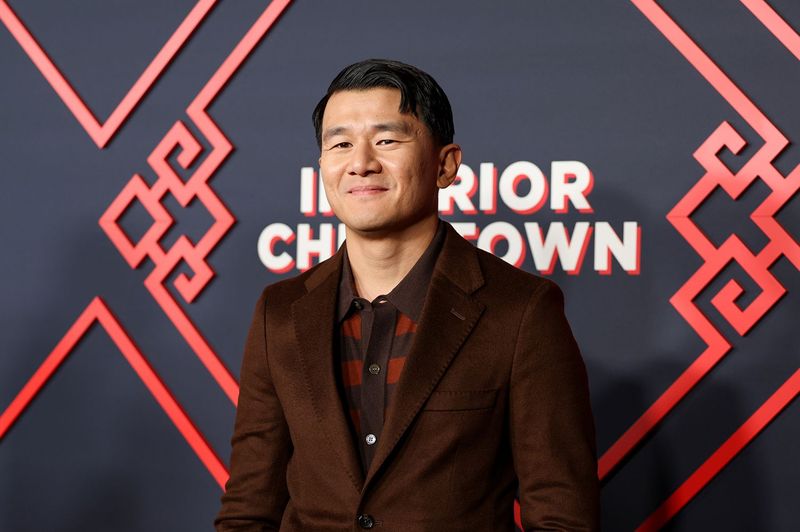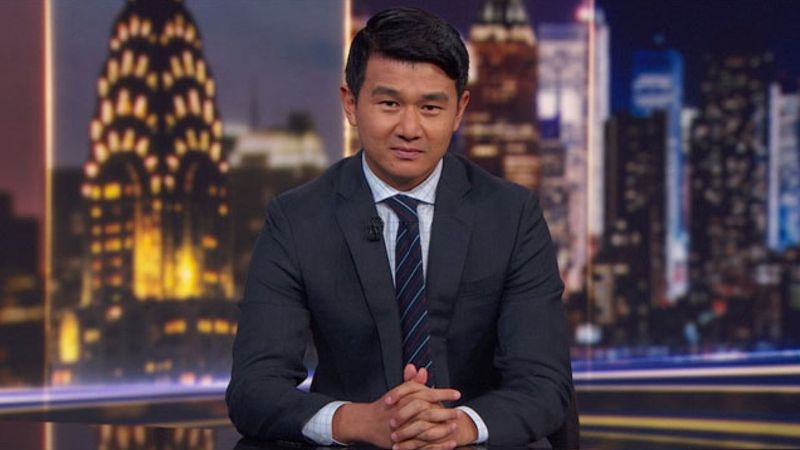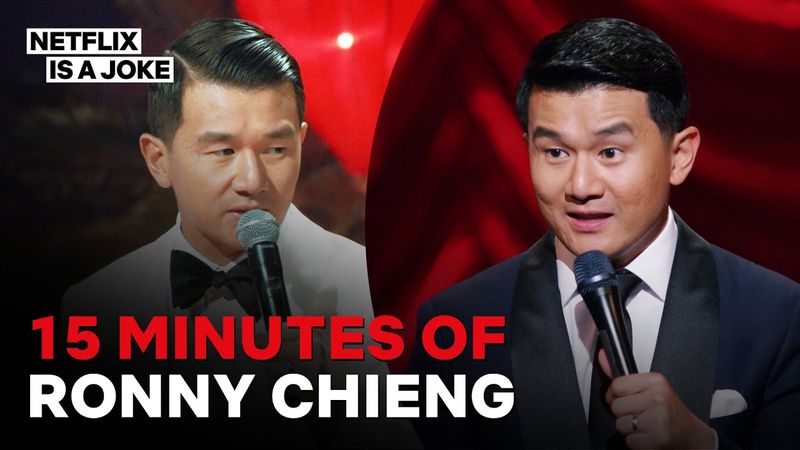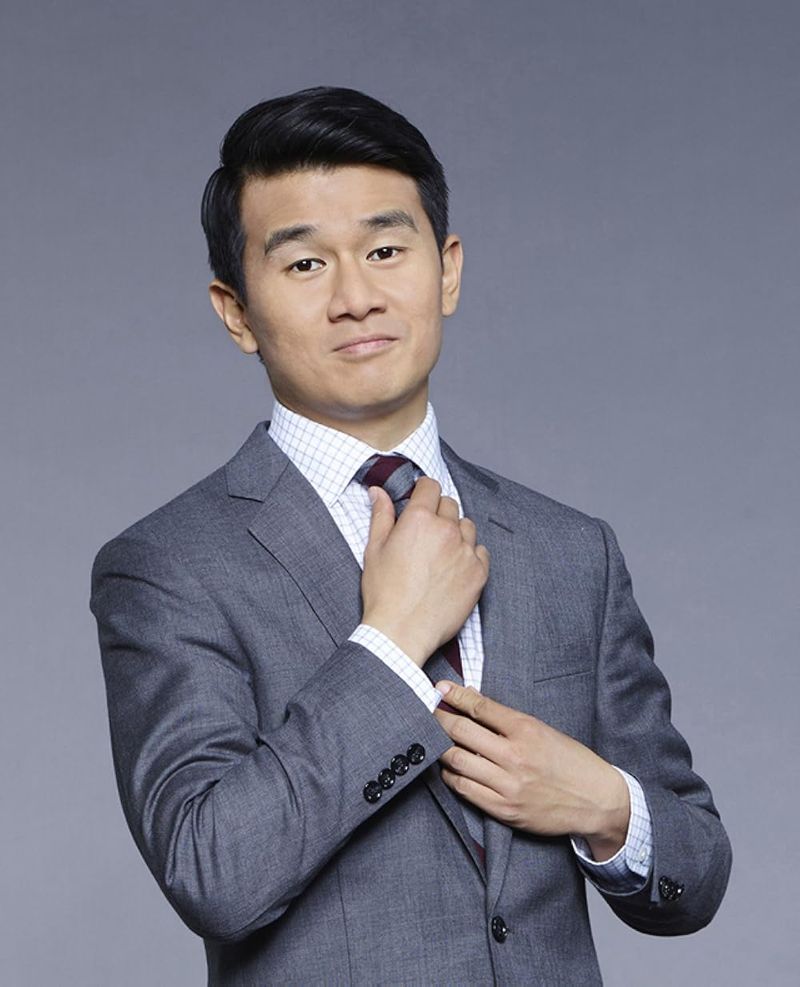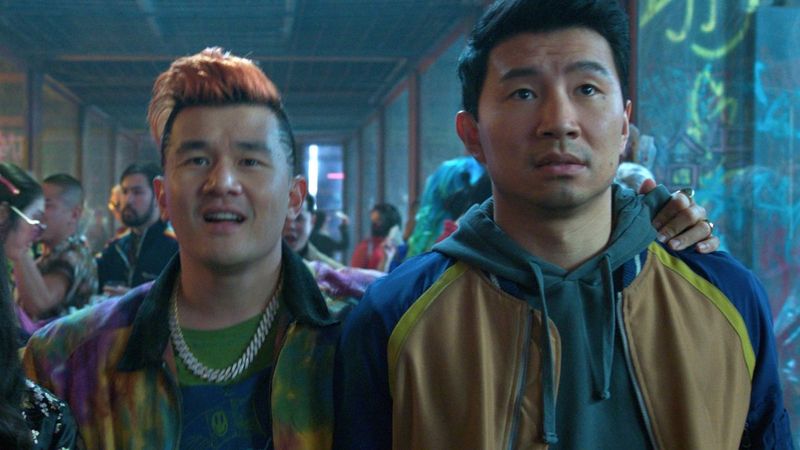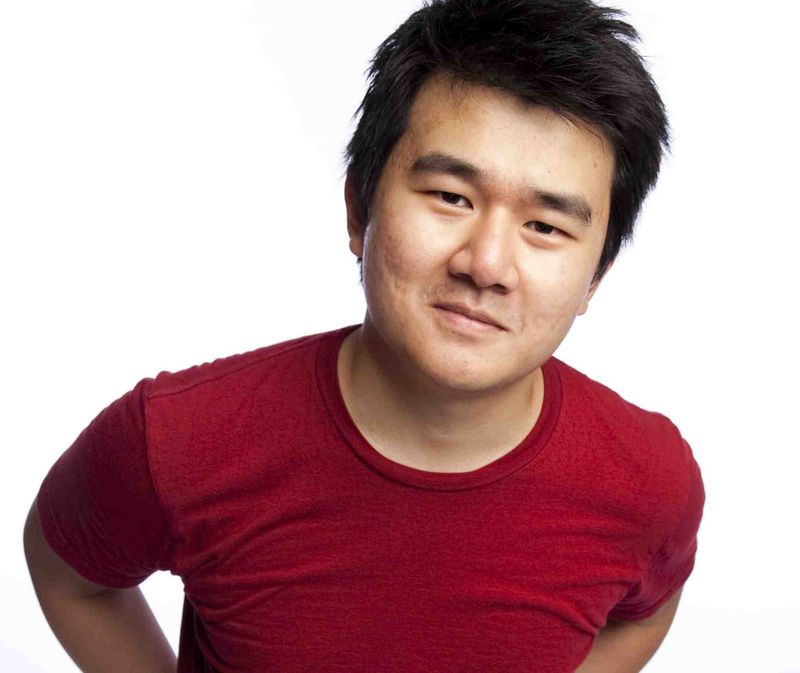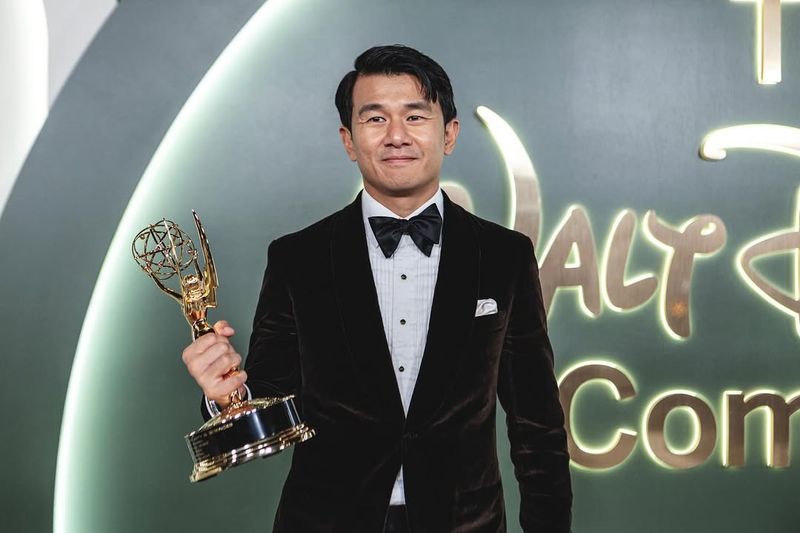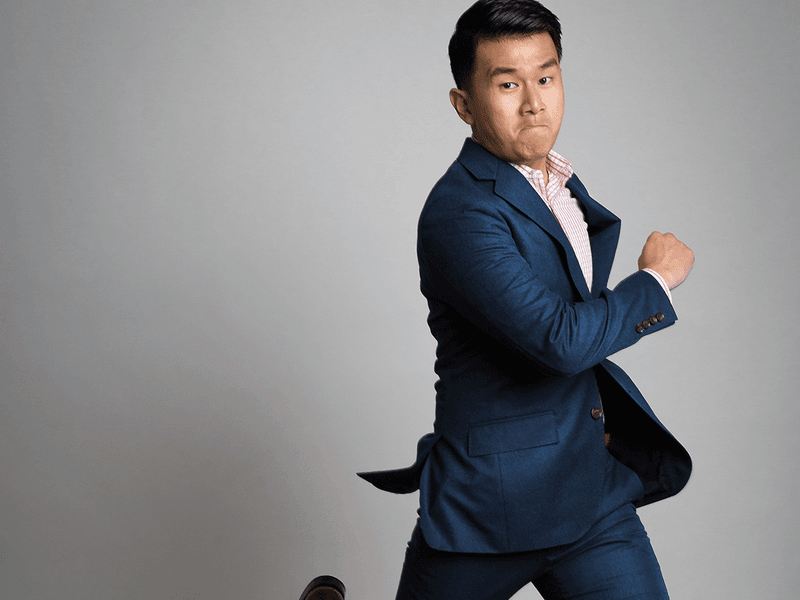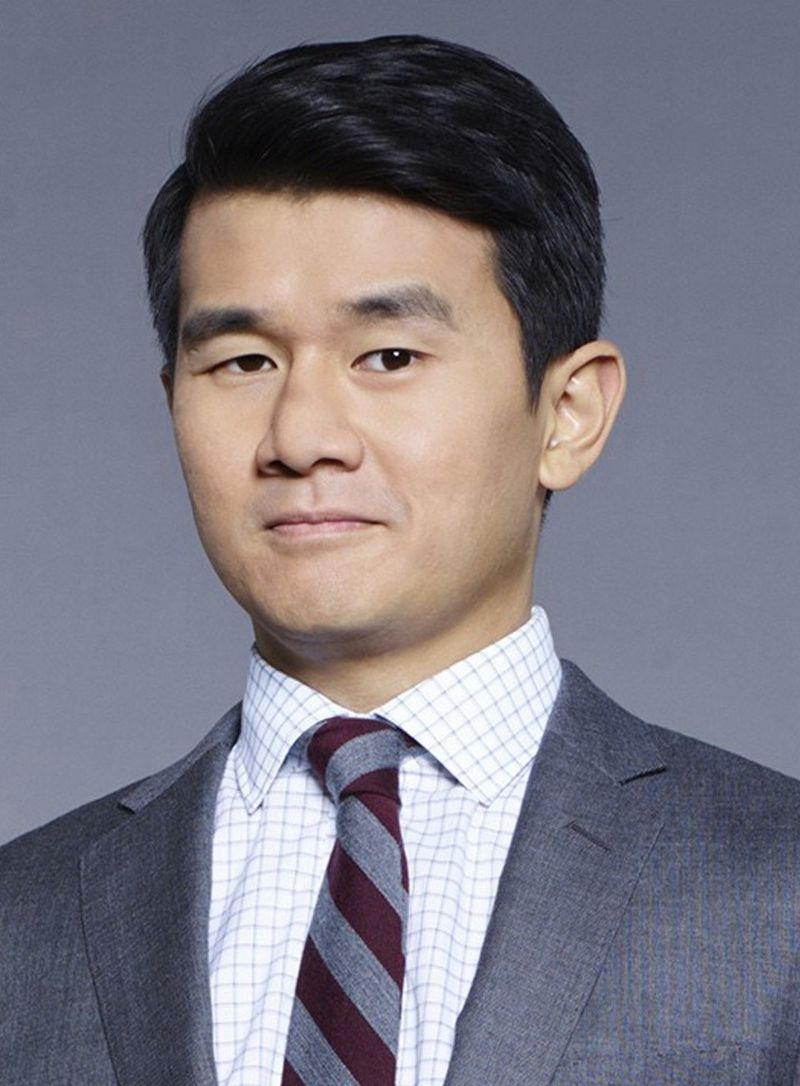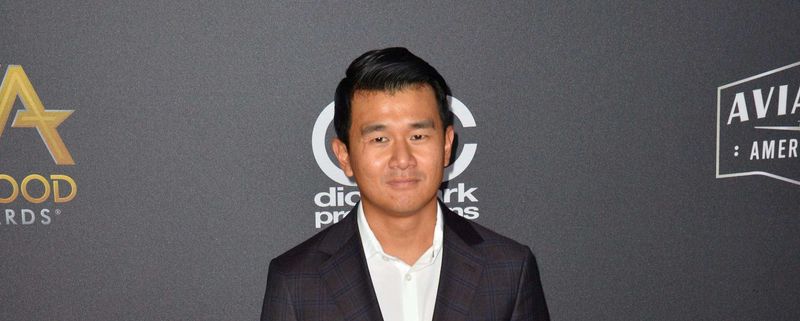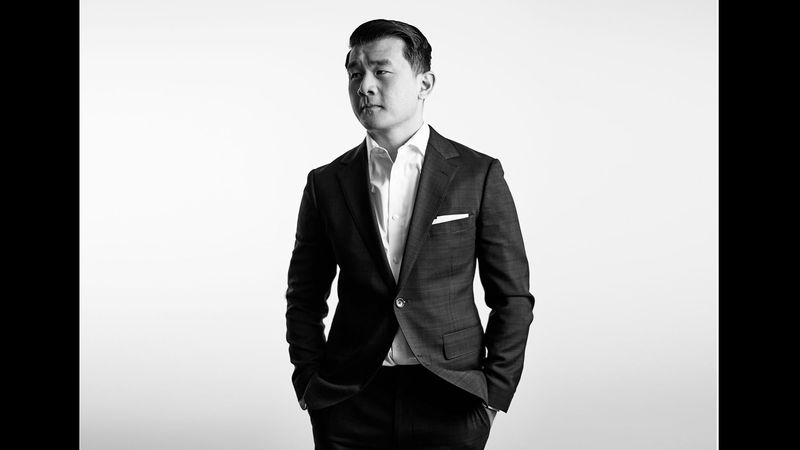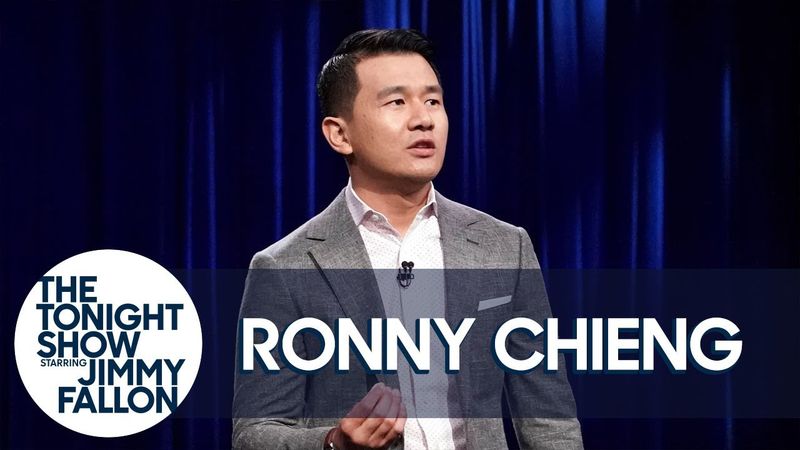Ronny Chieng delivers comedy like a high-speed rant powered by caffeine and common sense. His jokes tear into modern life, technology, and the absurdities of living in a world that constantly gets dumber.
Here are 19 jokes that showcase his biting wit and perfect comedic fury.
1. Binge-Watching Blues
Every app wants my data. My step counter is like, “We noticed you’ve been motionless for 12 hours.” Yeah, I’m binge-watching and being emotionally unavailable. Mind your business.
Chieng takes a jab at the invasive nature of modern technology, highlighting how apps constantly demand attention and data.
By turning a mundane activity like binge-watching into a comedic moment, he underscores the absurdity of tech’s overreach in our private lives. His humor captures the frustration of feeling monitored by gadgets, while also poking fun at his own lazy habits.
2. Coffee Culture Clash
Americans say “let’s grab coffee” like it’s a date, a job interview, and a therapy session. In Asia, if we say “let’s grab coffee,” we’re grabbing coffee. Then we leave. No origin story. No oversharing.
Chieng humorously contrasts the cultural differences in coffee meetings, highlighting the American tendency to turn simple gatherings into multifaceted events. His comedic take emphasizes the straightforwardness of Asian culture, where coffee is just coffee, free from additional baggage. Through this joke, he brings attention to the complexities and expectations often attached to casual outings in America.
3. Passive-Aggressive Fridge
I don’t need AI in my fridge. I just need it to keep things cold. Stop sending me passive-aggressive notifications like, “You’ve had the same yogurt for three weeks.” Shut up, Samsung.
Chieng’s joke targets the over-engineered features of modern appliances, turning everyday frustrations into comedy gold. He mocks the needless complexity and passive aggression of smart technology, all while highlighting his preference for simplicity. This quip resonates with anyone who has felt overwhelmed by technology’s unnecessary features, providing a humorous take on the role of AI in our daily lives.
4. Bad at Math
Why are people proud of being bad at math? “Haha I can’t even count!” That’s not cute. That’s how you lose a house.
Ronny Chieng humorously criticizes the casual attitude towards math incompetence, suggesting that it’s not a trivial flaw. It’s a reminder of the importance of basic skills in everyday life. In a world where financial literacy is crucial, Chieng’s joke highlights the absurdity of being boastful about a lack of mathematical ability. His comedic delivery makes this point both relatable and amusing, engaging audiences with his sharp and fast-paced humor.
5. Online Review Woes
Online reviews are the worst. “Four stars because the waiter didn’t smile.” Oh I’m sorry, did you want dinner or a Broadway performance?
Chieng’s joke highlights the trivial complaints often found in online reviews, poking fun at unrealistic customer expectations. By comparing dining to a theatrical experience, he humorously criticizes the entitlement of some diners. His wit brings a fresh perspective to the often-overlooked absurdity of review culture, where the focus shifts from food to frivolous details. This comedic observation resonates with anyone who’s ever rolled their eyes at an overcritical review.
6. Tipping Troubles
America invented tipping just so you can feel guilty for bad service. I shouldn’t have to do math because your employer is cheap.
Chieng’s joke tackles the perplexing world of tipping, a system that can leave diners feeling awkward and uncertain. By pointing out the irony of tipping for subpar service, he highlights the absurdity of the practice. His humor sheds light on the economic burden placed on consumers due to the employer’s cost-cutting measures. This witty critique resonates with anyone who has ever been baffled by the expectations surrounding tipping culture.
7. Stand Ovation Critique
I don’t like standing ovations. Just clap sitting down. Why do I need to risk my knee cartilage to prove I liked the show?
Chieng humorously questions the necessity of standing ovations, poking fun at the physical effort required to express appreciation. His comedic critique highlights the performative aspect of modern audiences, where applause becomes a spectacle rather than genuine approval. Through this joke, he invites audiences to reevaluate the tradition of standing ovations, suggesting that appreciation can be shown without unnecessary theatrics. His wit provides a fresh take on cultural norms.
8. Work for Money
“Do what you love.” No. Do what pays. Then cry in your Ferrari.
Chieng’s joke offers a cynical twist on the popular motivational adage, emphasizing practicality over passion. By humorously suggesting a trade-off between personal fulfillment and financial success, he critiques society’s obsession with idealistic career choices.
His wit highlights the harsh realities of the working world, where passion doesn’t always pay the bills. This comedic observation resonates with anyone who has ever faced the dilemma of choosing between their dreams and financial stability, offering a humorous yet realistic perspective.
9. Emotional Stagnation
People say “you’ve changed” like it’s a bad thing. Yeah I changed—because I learned stuff and got better. Sorry you’re still emotionally 2008.
Chieng’s joke critiques resistance to personal growth, highlighting how change is often perceived negatively. His humor emphasizes the benefits of evolving over time, contrasting it with the stagnation of those stuck in the past. This witty observation resonates with anyone who has faced criticism for self-improvement, turning a common societal issue into a comedic moment. Through his sharp wit, Chieng encourages audiences to embrace change and personal development.
10. Group Project Lessons
Group projects taught me everything I needed to know about adulthood: you’ll do all the work, one guy will disappear, and Karen will take credit.
Chieng humorously compares group project dynamics to adult life, highlighting the familiar frustrations of teamwork. By turning a common academic experience into a comedic lesson, he underscores the inefficiencies and imbalances present in collaborative efforts. His wit resonates with anyone who has ever felt overwhelmed by group responsibilities, offering a humorous critique of teamwork’s challenges. This joke transforms a mundane reality into an amusing reflection on adulthood.
11. Silent Retreat Reality
I went to a “silent meditation retreat.” Ten people sitting in a room trying not to fart. That’s not spiritual—it’s tense.
Chieng humorously debunks the serene image of silent retreats, highlighting the awkwardness and underlying tension. By turning an idealized spiritual experience into a comedic scenario, he critiques the often unrealistic expectations surrounding such practices. His wit resonates with anyone who has ever felt the pressure to conform to spiritual norms, offering a fresh perspective on the pursuit of inner peace. This joke provides a relatable and amusing take on meditation retreats.
12. Cold Brew Criticism
I don’t understand cold brew. You take regular coffee, make it worse, then brag about it. Congratulations, you’ve invented disappointment.
Chieng’s joke critiques the cold brew coffee trend, highlighting the absurdity of complicating a simple beverage. By humorously pointing out the irony of creating a worse version of coffee, he mocks the pretentiousness often associated with trendy drinks. His wit resonates with anyone who has ever been baffled by overhyped food trends, providing a humorous take on modern consumer culture. This joke offers a comedic critique of the quest for novelty in the culinary world.
13. Litigious America
Americans will sue you for anything. Trip on a grape? “I’m emotionally traumatized. I demand $10 million and a Netflix docuseries.”
Chieng’s joke highlights the litigious nature of American society, poking fun at the extreme lengths people go for compensation. By turning a trivial incident into a dramatic scenario, he critiques the culture of lawsuits and entitlement. His wit resonates with anyone who has ever been amused or frustrated by frivolous legal cases, offering a comedic take on a serious societal issue. This joke provides a humorous reflection on the complexities of modern legal culture.
14. Smart Toaster Silliness
Why do you need a smart toaster? It has two jobs: heat and eject. That’s it. I don’t need Bluetooth toast.
Chieng’s joke humorously critiques the over-engineering of household appliances, highlighting the absurdity of unnecessary features. By pointing out the simplicity of a toaster’s function, he mocks the trend of adding technology where it’s not needed. His wit resonates with anyone who has ever felt overwhelmed by the complexity of modern gadgets, providing a comedic take on the pursuit of technological novelty. This joke offers a light-hearted critique of consumer culture’s obsession with smart devices.
15. Gym Grunt Exaggeration
Every gym has that one guy lifting weights like he’s summoning demons. Bro, it’s 25 pounds. Calm down. You’re not in an anime.
Chieng humorously highlights the exaggerated behavior often seen in gyms, poking fun at those who overdramatize their workouts. By comparing gym-goers to anime characters, he mocks the theatrics of fitness culture. His wit resonates with anyone who has ever witnessed or participated in exaggerated gym antics, offering a comedic take on the pursuit of physical perfection. This joke provides a light-hearted critique of the performative aspects of modern fitness.
16. Corporate Email Etiquette
Corporate emails are passive-aggressive poetry. “Per my last email” is HR speak for “I hate you but can’t say it.”
Chieng’s joke critiques the indirect communication style often found in professional emails, highlighting the thinly-veiled hostility. By humorously exposing the subtext of corporate language, he mocks the insincerity and pretentiousness of workplace communication. His wit resonates with anyone who has ever been frustrated by the passive-aggressiveness of office emails, providing a comedic take on the complexities of corporate etiquette. This joke offers a humorous reflection on the subtleties of professional interactions.
17. Extreme Weather Woes
I love America but your weather is aggressive. It’s either fire, flood, or blizzard. Where’s the middle setting?
Chieng’s joke humorously critiques the extreme and unpredictable nature of American weather, highlighting the lack of moderation. By comparing weather conditions to volatile settings, he mocks the dramatic climate shifts experienced across the country. His wit resonates with anyone who has ever been caught off guard by sudden weather changes, offering a comedic take on the challenges of dealing with nature’s unpredictability. This joke provides a light-hearted reflection on the extremes of American weather patterns.
18. Astrology Avoidance
People ask if I believe in astrology. I believe people use it to avoid therapy. “I ghost people because I’m a Gemini.” No, Susan. You’re just toxic.
Chieng’s joke critiques the use of astrology as an excuse for undesirable behavior, highlighting the avoidance of accountability. By humorously pointing out the absurdity of attributing actions to star signs, he mocks the reliance on astrology over self-awareness. His wit resonates with anyone who has ever encountered similar justifications, providing a comedic take on the complexities of personal responsibility. This joke offers a humorous reflection on the use of astrology in modern society.
19. Smartwatch Breathing Alert
I have a smartwatch that tells me when to breathe. Thanks, I didn’t realize I was about to die while scrolling TikTok.
Chieng’s joke humorously critiques the overbearing features of modern wearables, highlighting the absurdity of technology dictating basic human functions. By pointing out the irony of needing reminders to breathe, he mocks the intrusive nature of smart devices. His wit resonates with anyone who has ever felt overwhelmed by constant notifications, providing a comedic take on the role of technology in everyday life. This joke offers a light-hearted critique of the dependency on smart gadgets.
